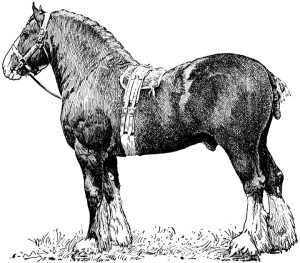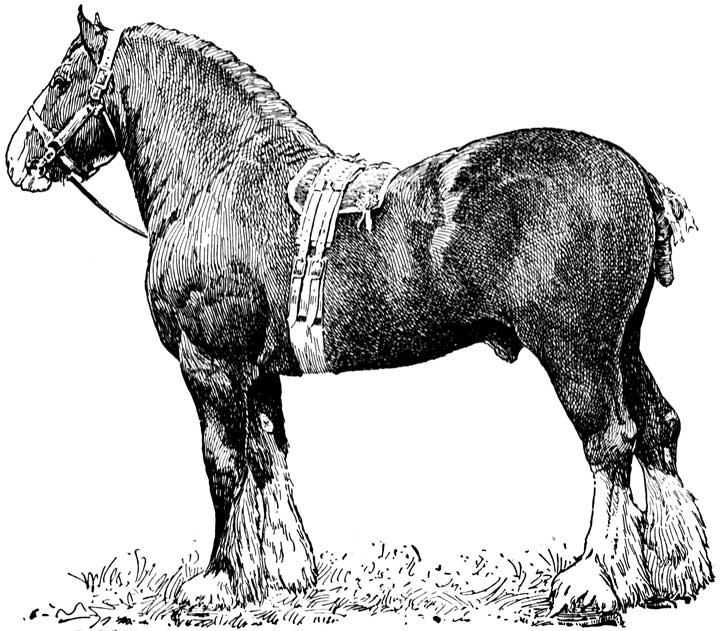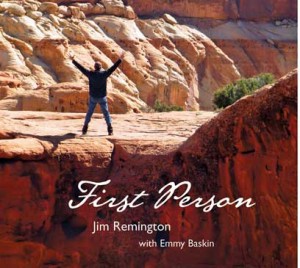by Jan MacKell Collins
Most history buffs have heard of George McJunkin, the former slave from Texas who discovered the much heralded “Folsom Fossils” in New Mexico during the 1930s. There was another McJunkin family however, distant cousins to the Texas family who eventually gave George his freedom. This branch of the family made history in their own right. Among other achievements, farmer and horse breeder Robert Henry McJunkin was the first Anglo settler to bring draft horses to the San Luis Valley of Colorado.
McJunkin was already 48 years old when he came to the expansive valley in 1889. Born in Indiana in 1841, he was orphaned at a young age. Most of his 10 siblings were taken in by other families. As for McJunkin, he and his brother Alfred were put to work as Abound Boys – the term used for somewhat abused and indentured servants during the 1800s.
 There is little doubt that as he toiled, McJunkin dreamed of building a better life. By 1861 he was in Illinois, where he enlisted with the Union Army to fight in the Civil War. The war took its toll on him. During a skirmish near Fort Donelson, Tennessee in 1862, he was seriously wounded when an enemy bullet penetrated his sinus cavity. The painful wound would plague him for the rest of his life. Next, during a forced march in 1863, McJunkin suffered severe heart pains and exhaustion. He was mustered out of the army and sent home, but re-enlisted in 1864.
There is little doubt that as he toiled, McJunkin dreamed of building a better life. By 1861 he was in Illinois, where he enlisted with the Union Army to fight in the Civil War. The war took its toll on him. During a skirmish near Fort Donelson, Tennessee in 1862, he was seriously wounded when an enemy bullet penetrated his sinus cavity. The painful wound would plague him for the rest of his life. Next, during a forced march in 1863, McJunkin suffered severe heart pains and exhaustion. He was mustered out of the army and sent home, but re-enlisted in 1864.
Two years later McJunkin’s foot was crushed by a steamboat, ending his military career for good. Once again McJunkin returned home and took up farming, the only skill he knew. He married his childhood sweetheart, Rebecca Roberts, but there was a restlessness inside him even as the newlyweds began having children. By 1877 the McJunkins were farming in Kansas. Rebecca was raising three children and would have three more during their time there.
By 1880 McJunkin was prosperous, growing corn and wheat near Hutchinson with upwards of 20 farmhands. When a devastating prairie fire damaged the farm, McJunkin decided to raise Hamiltonian horses. This elite breed of draft horses were also known for their racing abilities. Today, these beautiful equine are thought to have been descendants, or were similar to, an English thoroughbred racehorse of the 1790s named Hambletonian. Even today, Hamiltonians are highly sought after and the Hambletonian Stakes, a popular harness race, takes place in New Jersey each year.
In spite of his success, McJunkin remained restless. Rebecca was still bearing children and may have wanted to settle down, but the Oklahoma Land Rush of 1889 was too intriguing to McJunkin. It was the first time government land was offered to settlers, and he wanted his piece. Family history only records that McJunkin participated in what must have been a most exciting race. Unfortunately, there is nothing to indicate that McJunkin succeeded in scoring his own piece of land. All that is known for sure is that the family next decided to give Colorado a try.
Once again, Rebecca gathered up her skirts and her children, and set about packing for the next excursion. The family arrived in the San Luis Valley of Colorado within months of the Land Rush. To their delight, they discovered the valley offered lush plains with rich grassland and an ample growing season. McJunkin resumed a small farming operation but also continued pursuing his love for raising horses.
From all appearances, the McJunkins were quite the busy family during their time in the valley. Over time they resided at the budding settlement of Garrison, platted in February of 1891 along the Denver & Rio Grande Railroad, just northeast of Monte Vista. They also settled at Ignacio, where the now-defunct McJunkin Street once led to the family farm. Rebecca sent her older children to school and made money selling eggs and other goods while her husband traveled for both business and personal reasons. It is known he returned to Kansas at least once to file documents regarding his injuries during the war. In 1891, similar documents were filed in Saguache County. The last McJunkin homestead was likely near Monte Vista, where the last two of their twelve children were born in 1891 and 1892.
[InContentAdTwo]
Of McJunkin’s achievements in the San Luis Valley, the most notable was the introduction of the first draft horses the locals had ever seen. They may have been the same Hamiltonians he had favored raising in Kansas. Draft horses were fast becoming a hit among farmers. Not only were they larger and gentle-natured, they were also specifically bred for performing such tasks as plowing, pulling and other hard work.
Such a small thing as bringing stronger horses to local farmers produced big results. Newfangled, updated machinery in the way of combines, harrows, mowers, steel plows and threshers were being put on the market. They could cut a man’s work time considerably, but only if aided by increased horsepower. McJunkin’s draft horses were just the ticket to increase productivity among San Luis Valley ranchers.
Upon their introduction to the valley, McJunkin’s draft horses were indeed a wonder. McJunkin’s son, Ulysses “Jake” McJunkin later recalled that the horses were such a hot commodity that initially an armed guard was hired to watch them at night and protect against thieves. The need for night watchmen subsided as other ranchers procured their own draft horses, sometimes from the McJunkin place.
The McJunkins may have carried out even more feats in the San Luis Valley if not for Robert’s bad health. The high altitude was too much for his heart, and the family was forced to move on. By 1893 the McJunkins had relocated to Farmington, New Mexico where Robert became a successful lumberman. He also continued raising horses and his visits to Colorado remained frequent.
Other members of the family remained in Colorado too, including Jake; son Elton, who dabbled in mining; daughter Charlotte, who spent time in Durango; and son Ralph, who became a rodeo rider. Robert McJunkin died in 1928 and is buried in Farmington. Most of the family is buried there as well. Today there is little evidence that the historic agricultural sector of the San Luis Valley once benefited from a Civil War veteran with a dream.
Jan MacKell Collins is the great-granddaughter of Robert McJunkin. She currently lives in Arizona, the location of her other family roots, but loves researching her Colorado heritage.


